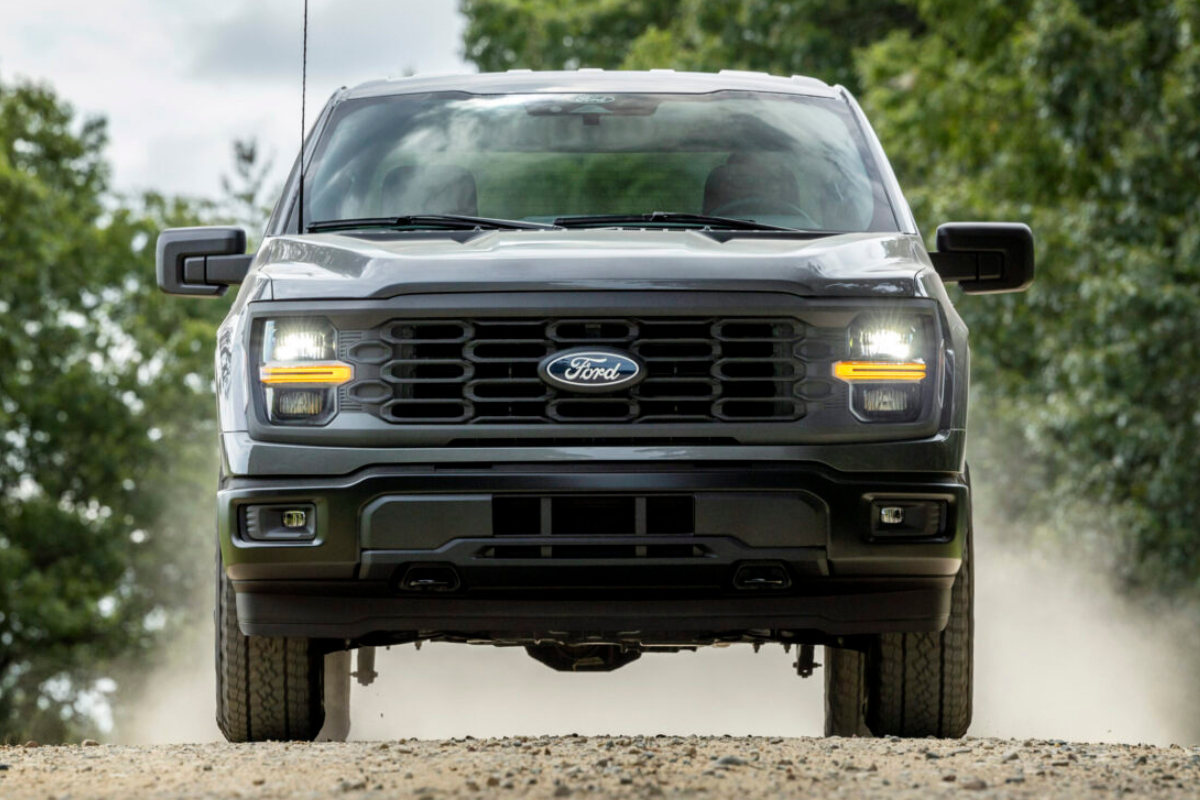Ben Welham
February 4, 2025

Ben Welham
February 4, 2025

2024 Ford F-150 STX
"Aerodynamics doesn’t stop at the front. Unlike a mullet, it’s business in the front AND the back"
Traditionally built for rugged durability, today’s pickups are increasingly incorporating sleek, aerodynamic elements to improve fuel efficiency and overall raw performance.
But what design techniques are used?
One of the biggest challenges in designing a pickup truck is balancing its large, boxy frame with the need for aerodynamic efficiency.
Vehicle makers are now focusing on designing streamlining body shapes that don’t compromise the truck’s signature feature; toughness.
This is why trucks like the Ford F-150 feature a tapered front end, a more rounded windshield and subtle tweaks to the roofline, all of which help air flow smoothly over the truck, reducing drag which equals greater fuel efficiency.
These design choices directly contribute to improved fuel efficiency and highway performance, making trucks more eco-friendly and cost-effective. Did someone say ‘saving money’ in this current economic climate? Sign us the hell up!
To enhance aerodynamics further, many trucks now come equipped with active grille shutters, which open and close automatically based on driving speed and engine temperature.
This helps to optimize airflow, reducing resistance and improving gas mileage at higher speeds. Plus, it can help feed the thirsty engine added cool air – always a bonus.
Additionally, air dams are strategically placed below the front bumper to guide airflow around the vehicle, another key design element that minimizes drag without altering the truck’s bold appearance.
Aerodynamics doesn’t stop at the front. Unlike a mullet, it’s business in the front AND the back.
Pickup truck bed design also plays a significant role in minimizing turbulence and drag.
Some trucks now feature lightweight tonneau covers or streamlined bed shapes to keep airflow smooth.
Tailgate design has also seen innovation; the GMC Sierra’s MultiPro tailgate is a great example which has adjustable configurations and is designed not only for functionality but also to optimize how air moves around the rear of the truck.
The modern pickup truck proves that ruggedness and aerodynamics can coexist.
By integrating sleek body shapes, active air management systems and nifty bed designs, manufacturers are ensuring that today’s pickups are not only powerful but also more efficient and eco-conscious – a real benefit.